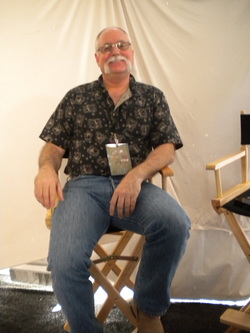 A little financial downward dog.
A little financial downward dog. Part of the whole problem is figuring out where your money goes and how to plan for it coming and going. I often feel like money is just water through my fingers, but with a little research and mindfulness, I've gotten better at knowing where I'm at. My first step was reading a book called How to Get Out of Debt, Stay Out of Debt, and Live Prosperously, by Jerrold Mundis. This book is full of strategies for taking control of your finances, such as creating a spending plan, how to pay down debt, deal with creditors, and so on. Really good advice. I'd say that's step one. Step two, (or one and a half) is actually doing the things he talks about. Now that I know exactly how much income I have, and what my expenses are, I can track things and make sure I stay within my means. I also started using a great app/website called Mint.com. It's linked to all my financial accounts, including investment accounts, and the mobile version is great for those times when I'm at the store and need to know if I can afford that extra bag of marshmallows.
After knowing what the sitch is, I decided what was most important to me, and how I wanted my financial picture to change. One thing I did was make a decision to not use my credit card anymore. Ever. Never ever. And by paying every month on that, I've managed to reduce my credit card debt by over half in just under two years. And let me tell you, that feels great. Aside from that, I also set other goals. I wanted to set up reserve funds for various things, and luckily, there's a goal section in Mint that lets you do that. It keeps track for you, so you can see how far you have to go. I also keep my savings in a partitioned account with a high interest rate (well, relatively high, for a savings account). It's almost like virtual envelopes that I can keep my money in. For instance, I have an envelope for the car, for travel, clothes, and the house. Plus a general emergency fund and a rainy day fund. Each month I put a bit away in each account, and over time it really adds up (plus earns interest!). Then, when the house needs a repair, or the car insurance is due, or I need some fancy new duds, I'm not scrambling to figure out how to pay for it. It's already there. Believe me, there is great peace of mind in planning ahead. And for things like travel that aren't generally cheap, I don't have to whip out the credit card. The money is already there.
This is kind of a two step step three. The first part is, keep doing your creative work. Work hard at it. Keep building your body of work, getting better, and putting it out there. The more you do that, the more likely it is that you'll be able to increase your earnings, as well as your skill levels, which ends up being a wonderful cycle of being able to charge more for your work and having more people seek you out, which brings in more funds to make more work, and so on and so on. The second part is to keep working at your financial fitness. There's no way you're going to turn into Warren Buffet on Day One. But, with a little hard work and diligence, you can improve. If you have a day where you have to use the credit card, or you go over your spending plan, don't panic, and don't beat yourself up. Just tell yourself you'll try to do better tomorrow. It's impossible to change your financial picture in just one day, but in one day you can achieve small goals. Not eating out, not using the credit card, putting money into savings, walking rather than driving, whatever. And those little goals become habits eventually, and then those habits add up to a more secure financial situation where you can breathe and not worry so much about where your rent money is coming from, freeing you up to worry about your next masterpiece instead.
Now go forth and thrive.


 RSS Feed
RSS Feed
